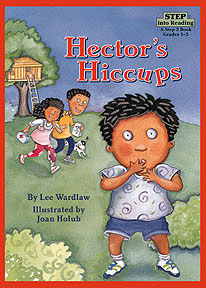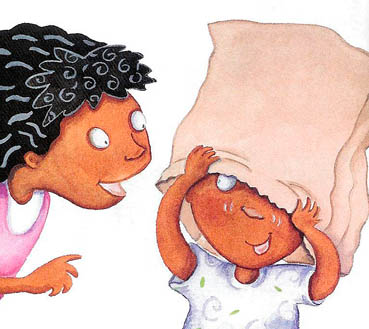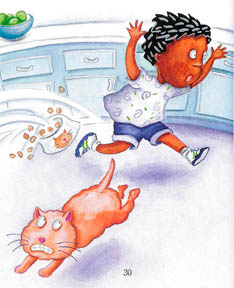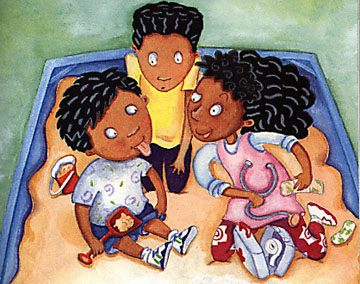


|
|
Random House Garden State Reader’s Choice Finalist |
|
 |
Hiccups were called yex or yox (which also meant to sob) in the days of Old English. Later, these words were changed to hiquet, hicket, hickot, hickock, hitchcock, and hiccough. By the late 16th century, the accepted spelling and pronunciation was "hiccup." |
 |
Eryximachus, a 5th century BC doctor, recommended this cure for hiccups: " . . . hold your breath, and if this fails, gargle with a little water; and if the hiccough still continues, tickle your nose with something and sneeze, and if you sneeze once or twice, even the most violent hiccough is sure to go." |
 |
In the year AD 77, Pliny the Elder, a Roman naturalist, wrote: "When a horse-shoe becomes detached from the hoof . . if a person takes up and puts it by, it will act as a remedy for hiccup the moment he calls to mind the spot where he has placed it." |
 |
In Great Britain and Europe, the superstitious believed that hiccups were a sign someone was thinking about you. The cure? Hold your breath and count to one hundred, or have someone drop a cold key down your back. If you hiccupped in church, you were thought to be possessed by the devil. |
 |
If you had hiccups in the olden days of Greece, it was believed that someone who disliked you was complaining about you to someone. The only way to get rid of the hiccups was to guess the name of that person. |
 |
If you soaked a piece of paper, cut in the shape of the cross, and placed it on your forehead, you could cure the hiccups, according to German tradition. |
 |
A Scottish book, DISCOVERIE OF WITCHCRAFT, published in 1584, offered this cure for hiccups: "Some will hold fast their left thombe [thumb] in their right hand when they hickot; or else will hold their chinne [chin] with their right hand whiles a gospell is soong [sung]." |
 |
"The following charm, thrice repeated, holding the breathh, is, or used to be, with us, a cure for [hiccups]: "Hiccup-sniccup-look up - - right up - - three drops in a cup - - is good for the hiccup." - from SUFFOLK WORDS, 1823. |
 |
Unborn babies have been known to hiccup in the womb as early as 11 weeks! |
 |
Men get hiccups more often than women. |
 |
Hiccup epidemics in Winnipeg, Canada, occured in 1919, 1922, and 1923 after severe outbreaks of the flu. |
 |
The World's Longest Hicker was Charles Osborne, an American farmer, who hiccuped for almost 70 years. He started hicking for no reason, in 1922, while weighing a pig before slaughtering it. The hiccups disappeared in 1990. Mr. Osborne hiccuped as few as 10 and as many as 40 hics per minute - - or about 430 million times over 68 years. Sometimes he hiccuped so hard, his false teeth would fall out! |
 |
One person who suffered with the hiccups for eight years received more than 60,000 letters with suggestions of cures. (None of them worked.) |
 |
Drinking pineapple juice, orange juice, and dill or peppermint tea may help get rid of hiccups. Other home cures include: breath holding, eating a tablespoon of granulated sugar, gargling with water, sipping ice water, drinking from the far side of a glass, pulling your knees up to your chest, rebreathing into a paper bag, standing on your hands or head, cursing, touching two pins together, and eating ice cream. Lee Wardlaw recommends drinking one or two teaspoons of balsamic vinegar. |
All illustrations copyright Joan Holub, 1999





